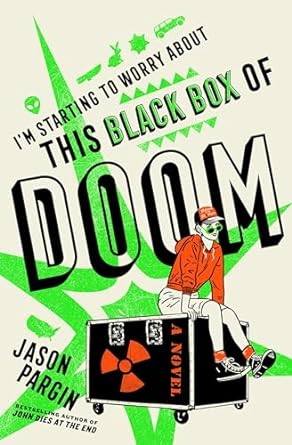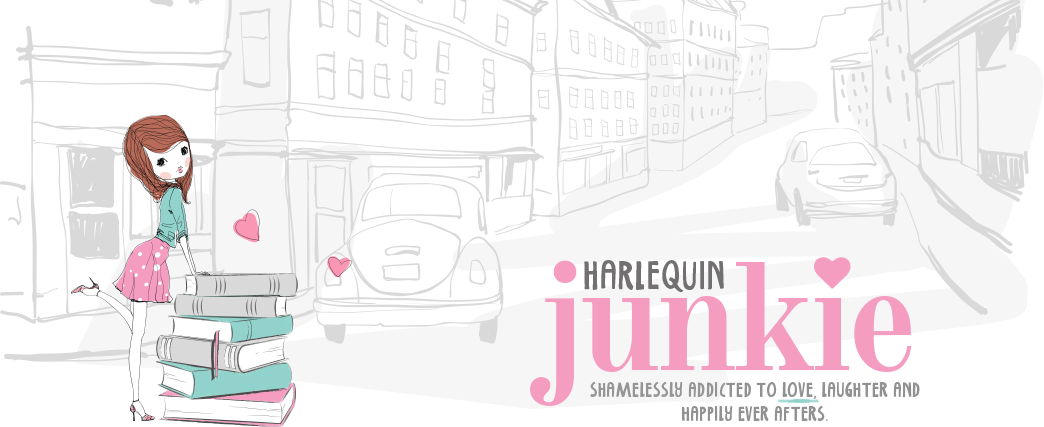Today, HJ is pleased to share with you Jason Pargin’s new release: I’m Starting to Worry About This Black Box of Doom: A Novel
A standalone darkly humorous thriller set in modern America’s age of anxiety, by New York Times bestselling author Jason Pargin.

But there are rules:
He cannot look inside the box.
He cannot ask questions.
He cannot tell anyone.
They must leave immediately.
He must leave all trackable devices behind.
As these eccentric misfits hit the road, rumors spread on social media that the box is part of a carefully orchestrated terror attack intended to plunge the USA into civil war.
The truth promises to be even stranger, and may change how you see the world.
Enjoy an exclusive excerpt from I’m Starting to Worry About This Black Box of Doom: A Novel
From I’m Starting to Worry About This Black Box of Doom by Jason Pargin. Copyright © 2024 by the author and reprinted by permission of St. Martin’s Publishing Group.
2
Abbott
The short trip to Abbott’s home afforded him just enough time to engage in his favorite pastime, which was carefully tabulating all of the ways in which the universe was wronging him in that particular moment:
1. His new passenger did, in fact, insist on sitting in the front, undeterred by the pile of objects he kept in that seat specifically to prevent that. She had just climbed right in and pushed aside his carefully arranged barrier of lip balm, asthma inhaler, vape pen, throat lozenges, antacids, and bag of Flamin’ Hot Cheetos, the woman blundering into his private world like a wet dog rolling onto a chessboard in mid-match.
2. She kind of smelled bad. She stank of smoke, but not cigarette smoke—it was the acrid stink of plastic and other materials that only burned when things went badly wrong. He didn’t know what exactly could go wrong with a human metabolism to make a person smell like that and didn’t want to know.
3. And this was the worst of all—she simply wasn’t upset enough. As soon as they were in the vehicle and rolling, her teary panic evaporated, and out from behind that cloud beamed horrible, horrible sunlight. It’s not that Abbott was opposed to others being happy (though he found the miserable were generally less exhausting to be around), but Abbott himself was definitely not happy, and in the aftermath of any transaction, this kind of mismatch in demeanor generally implied that one party had gotten screwed.
“I haven’t been on a road trip in forever,” she cooed, gazing at the passing megachurch and Chevy dealership like she was taking in the Jungle Cruise at Disney World. “I’m so excited! Do you realize that only seventy years ago, there wouldn’t have even been a highway from here to DC? You’d literally have been getting off on little country roads, some of them gravel, to get from one end of the USA to the other. If you go back, like, three lifetimes, it’s a trip you wouldn’t expect everyone to survive; somebody in the party would be dead of tuberculosis or bear attack before you got halfway. There are so many parts of the world where they still don’t have this, a wide, perfectly smooth road from basically anywhere to anywhere.”
“Yeah,” muttered Abbott as they stopped at a red light. He immediately took the opportunity to act like he was engrossed by something on his phone.
She glanced over and said, “Hey, have you ever noticed that when you’re watching a movie or reading a book and a character mentions social media, it makes you cringe? Like if a character says, ‘We’re blowing up on Twitter!’ or ‘We’ve gone viral on TikTok!’ it’s just really off-putting. Corny.”
“Oh, really?” mumbled Abbott, wondering if this woman was going to stop talking long enough to let him think.
“You know why I think that is? I think we hate being reminded that this is how we spend all our free time. We want our fictional characters to go out and do things in the real world. If they show the protagonist zoning out on the sofa with their phone, it’s always portrayed as pathetic, like, ‘Look at this poor sap.’ That’s weird, right, considering that’s probably the exact position we’re in when watching them do it?”
Abbott cleared his throat and said, “Hey, uh, when I get to the house, I’ll have to talk to my dad. This is his car, and I’m just letting you know right now that he—”
“Let me stop you right there. Remember, I can read your mind. You’re already planning how you’re going to use ‘My dad won’t let me go’ as a way to get out of the trip. Maybe you’ll say he won’t let you have the car, even though you’ve clearly already gotten permission to use it for work, and this is work. I bet you find yourself doing that a lot.”
“Doing what?”
“Instead of just saying what you’d prefer, you off-load the choice to someone or something else. Instead of ‘I don’t want to hang out with you,’ it’s ‘I have work that night’ or ‘I’m not feeling well.’ Nothing is ever expressed as your own needs and wants, so you never have to defend your choices or own the consequences later. I used to do it all the time.”
“Fine, I don’t want to take you on this trip.”
“Yes, you do! Are you honestly telling me the version of you a month or a year or ten years from now won’t be happy that you rescued a desperate person, went on an adventure, and got a couple hundred grand to jump-start your adult life? Sure, you don’t want to do the work right now, during the hard part. Nobody does! But the real ‘you’ doesn’t exist in the moment; you exist in the long term. That you, the whole you, will be glad you did this.”
“I don’t want to do it, because what you’re asking me to do is objectively crazy and certain to end in tragedy.”
“I bet you do that a lot, too. Catastrophize. Everything outside your comfort zone is a worst-case scenario waiting to happen. The reality is this: Somebody with lots of money needs a job done, and you were in the right place at the right time—nothing crazier than that. And in a week or so, it’ll be completely behind you; all you’ll have is the money, some cool memories, and a few thousand more miles on your old man’s car. Even that will be good for it. City driving is torture for cars; they need to get out and run! By the way, you’ve never asked my name, and we’ve reached the point where it’s going to be too awkward for you to ask and you’ll have to play some roundabout game to get me to say it. Let me save you from that: It’s Ether. E-T-H-E-R.”From I’m Starting to Worry About This Black Box of Doom by Jason Pargin. Copyright © 2024 by the author and reprinted by permission of St. Martin’s Publishing Group.
Excerpt. ©Jason Pargin. Posted by arrangement with the publisher. All rights reserved.
Giveaway: One print copy giveaway- I’M STARTING TO WORRY ABOUT THIS BLACK BOX OF DOOM, US Winner Only
To enter Giveaway: Please complete the Rafflecopter form and post a comment to this Q: What did you think of the excerpt spotlighted here? Leave a comment with your thoughts on the book…
Meet the Author:
JASON PARGIN is the New York Times bestselling author of the John Dies at the End series as well as the award-winning Zoey Ashe novels. He previously published under the pseudonym David Wong. His essays at Cracked.com and other outlets have been enjoyed by tens of millions of readers around the world.


erahime
This sounds like an interesting read. Thanks for the excerpt, HJ.
Diana Hardt
I liked the excerpt. It sounds like a really interesting book.
debby236
This should be good. thanks so much for sharing.
Nancy Jones
Sounds interesting.
Amy R
Sounds good
Glenda M
Interesting
Daniel M
looks like a fun one
Mary C.
Sounds interesting
Bonnie
What an interesting book! Great excerpt. I’d love to read more.
bn100
cool
Patricia B.
This certainly raises so many questions. Who is she? What has she been into? How did she get so much money? What is in the box and what is it for?
psu1493
I think the young woman is right that we make excuses to get out of things we don’t want to do. This excerpt has made me curious to see what happens next.